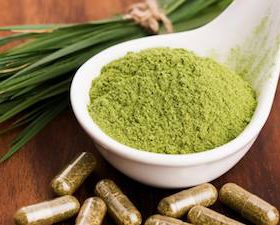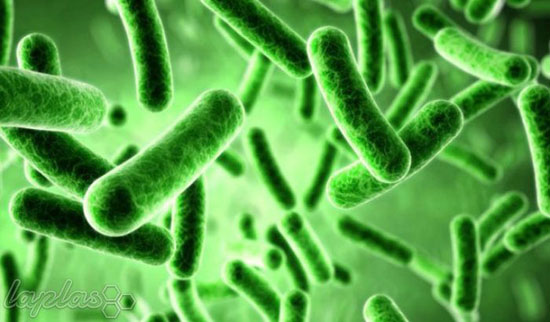The use of spirulina due to its many properties was first noticed in the late 70s in the pharmaceutical and health industries, and a lot of research was done on it, so that as much as possible, all the effective and useful aspects of this magical algae and its role It should be investigated in human health. This research led to the discovery of new compounds with anti-viral, anti-cancer, anti-HIV, anti-bacterial, anti-fungal and cytotoxic properties in clinical applications. In fact, these algae contained rich sources of secondary metabolites that had interesting applications in terms of biotechnology.

One of the advantages of cyanobacteria in spirulina compared to other organisms is that their cultivation process is simple and convenient. The use of cyanobacteria in the production of food, fuel, soil fertilization and the production of various secondary metabolites, such as toxins, vitamins, enzymes and drugs are among the applications of cyanobacteria in biotechnology. In the last two decades, cyanobacteria of the Spirulina genus have been known to produce a wide range of new bioactive compounds with great medicinal importance. Bioactive compounds in this genus have a wide range of biological activities such as antioxidant activities. Antioxidants are substances that prevent or delay the cellular oxidation of oxidizable substances or preserve the quality of foods from the oxidative deterioration of lipids. These compounds exert their effects by eliminating reactive oxygen species and activate detoxification proteins or prevent ROS production. ROS include superoxide anion radical, hydroxyl radical, nitric oxide radical and hydrogen peroxide, physiological metabolites.
Small amounts of ROS cause harmful changes on cell function, including lipid peroxidation, enzyme inactivation, and DNA oxidative damage. Oxidative damage caused by free radicals may be associated with aging and diseases such as atherosclerosis, diabetes, cancer, and liver disease. Various antioxidant defense mechanisms play an important role in removing ROS and lipid peroxidation, and thus protect cells against the toxic effects of ROS and lipid peroxidation. For this purpose, many artificial and synthetic antioxidants have been launched on the market. In fact, one of the most important problems in the food industry is the use of synthetic preservatives. Various sources have abundantly stated the carcinogenic dangers of synthetic preservatives, therefore, today, efforts are being made all over the world to isolate natural and safe antioxidants from natural sources in order to prevent the oxidative degradation of food and also the oxidative degradation of living cells. reduce
Cyanobacteria in spirulina algae are an important source of new medicinal compounds. Natural products, especially those obtained from algae, can not only have medicinal value, but are also used as structural models to create synthetic analogs.
After this introduction and after realizing that antioxidants can play an important role in cellular health, we will discuss the role of spirulina as a natural and strong antioxidant.
Spirulina is an organism that acquired the ability to fix dissolved carbon in seawater as a food source for reproduction. This genus belongs to the Oscillatoriaceae family, which includes filamentous cyanobacteria with spiral chain-like trichomes surrounded by a thin sheath. Spirulina is a photosensitizing cyanophate that is able to grow in high intensity sunlight and very alkaline conditions and high temperatures. This algae has vitamin supplements in the diet. Spirulina has been used as a dietary supplement for years. In many countries such as Africa, spirulina is still consumed as human food and as a major source of protein supply.
Antimicrobial effects of spirulina

So far, bioactive compounds have been identified in spirulina, which have various structures such as fatty acids, phenolics, bromophenols and terpenoids. The creation of resistance to the antibiotics available in the market has attracted everyone’s attention to discover the antibacterial compounds in spirulina. The antibacterial activity can be due to the presence of fatty acids longer than ten carbon atoms in the chain, which apparently It causes the lysis of bacterial protoplasts. Spirulina has all the biochemicals needed to build a healthy immune system, which eliminates free radicals.
Antiviral effects of spirulina
The compounds obtained from spirulina have inhibitory activity against a wide range of viruses, including measles, influenza A type and HIV, etc. Antiviral compounds in spirulina, phycocyanin protein, sulfated polysaccharide fragments, gamma linolenic acid and some sulfolipids expand the scope of spirulina’s antiviral activities and its effective role in suppressing the proliferation of herpes virus, cytomegalovirus, influenza A, measles, Mumps, human immunodeficiency and white spot syndrome viruses have been observed. In addition, studies show that spirulina minimizes the replication of I-HIV in human T cell lines and Langerhans cells, so that
The concentration of the extract between 1 and 1.5 micrograms/ml reduces virus production by almost 57%. The effective concentration of calcium in spirulina reduces virus multiplication by 50%, also spirulina contains 2-5% of sulfolipids that are effective against human immunodeficiency virus. Phycocyanin, phycoerythrin and phycoerythrocyanin pigments isolated from spirulina are effective antiviral agents against enterovirus.
are. These pigments exclusively limit 50% of eye diseases caused by enterovirus 71 in concentrations of 0.056 to 0.101 nanomolar.
Anticancer effects of spirulina

Chemical drugs used in cancer treatment have side effects, so there is always a need to produce safe, effective and new drugs. Spirulina acts as an anti-cancer agent through its action on the immune system, DNA repair and antioxidant properties. In fact, spirulina polysaccharides protect DNA from radiation as they activate the enzymes of the cell nucleus and increase the process of DNA thermination. Likewise, spirulina protects mice against the unpleasant effects of toxins such as cyclophosphamide by lipid peroxidation and chromosomal destruction. Spirulina significantly reduced the percentage of DNA fragmentation in the liver of animals exposed to anflutoxin.
Spirulina extract is effective against different types of human cancer cell lines such as lung, liver, stomach and breast cell lines due to its antioxidant and immune system modulating activities. The anticancer properties of spirulina are due to the production of valuable products and phycobili proteins such as phycocyanin, phycobili protein and allophycocyanin. The presence of large amounts of beta-carotene in spirulina significantly prevents the formation of cell carcinoma by reducing the number and size of tumors. Water-soluble polysaccharides isolated from spirulina have DNA repair activity and have shown a significant increase in endonuclease activities. In addition, the oral administration of spirulina phycocyanin increases the survival rate of cancer mice. In addition, spirulina extract is not toxic to normal cells; This is while many strains of cyanobacteria are toxic.
The results of research have shown that the tumor caused by dimethylbenz, which causes squamous cell cancer in hamsters, is treated by oral administration of spirulina extract. In fact, the use of spirulina aqueous extract in laboratory studies prevents the growth of human colon cancer cells and coded cancer cells. In addition, chloroform and methanol extract of spirulina also prevents the growth of breast cancer cells in this cell line in vitro. The 70% ethanolic extract of spirulina also showed great cell destruction in human acute leukemia cell lines in the treatment of white blood cell cancer.
Phycocyanins are the main biliproteins of spirulina, which have both antioxidant properties and destruction of free radicals. Phycocyanin-C is an inhibitor of cycloxinase-2, which causes apoptosis and has anti-inflammatory and anti-cancer properties. The increase of spirulina phycocyanin with CD59 protein expression in HeLa cells causes apoptosis. Phycocyanin-C by activating apoptotic enzymes
It induces apoptosis in cells. Purified polysaccharides and phycocyanin-C of spirulina affect the proliferation and differentiation of hematopoietic progenitor cells and can reduce the degree of anemia in mice.
Immunity effects
Spirulina has great antioxidant potential, but its true health value and role in human health has only recently been discovered. Phycosiamobilin, which is a chromophore attached to the main protein of phycocyanin, can act as a strong inhibitor of nicotinamide adenine dinucleotide hydrogen phosphate oxidase and is structurally similar to bilirubin. Consuming spirulina can cause . It prevents many vascular diseases including arthritis, high blood pressure and congestive heart failure, cancers, complications of diabetes and a wide range of neurological, fibrotic, or inflammatory disorders and has therapeutic potential. In the 21st century .The Food and Agriculture Organization of the United Nations (FAO) considered spirulina as an ideal food and food supplement.
Those interested in the production and cultivation of spirulina algae can contact us to visit the Pars algae production line and receive advice.










